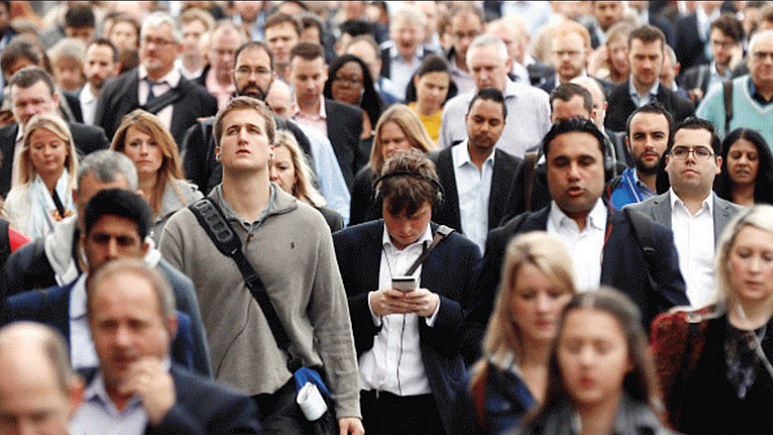London Diary: Underdogs no more
According to new research, one in six non-white British workers are in top professional roles compared with one in eight white British workers

Underdogs no more
Amid the doom and the gloom about the future of Britain’s ethnic minorities, there’s finally some good news which challenges the popular narrative that they are always at the back of the queue. Everywhere.
It has now emerged that ethnic minority workers are more likely to be employed in a professional role than their white counterparts. According to new research, one in six non-white British workers are in top professional roles compared with one in eight white British workers. The study, by the think-tank Civitas, presents a more nuanced picture of racial disparities than is normally presented by anti-race campaigners.
It found that even among ethnic minorities, there were significant variations with Indians and Chinese workers doing better than their black peers. Nearly a quarter of British Indian and Chinese workers were in the top “higher managerial and professional” classes (twice the proportion of white Britons) against only 7 per cent of black workers.
In terms of assets, it found while Indian citizens were behind native whites they were streets ahead of Black Caribbean citizens who in turn were better off than Bangladeshis and Pakistanis. But as with anything to do with race the findings have sparked a controversy. While the Government has welcomed the findings as an “important contribution to the national debate on race and ethnicity”, racial equality groups see them as an “attempt to diminish the realities of structural racism” in Britain.
Nostalgia for pain
Suffering from a headache or muscle pain? Well, don’t reach for your favourite painkiller. Instead try browsing through a family photo album. It could work wonders. Better than good old Paracetamol, according to a new study which claims that nostalgia is the best cure for minor aches and pains.
Scientists behind the study by the Chinese Academy of Sciences argued that there was a relationship between fond memories — such as those triggered by a childhood classroom or a packet of sweets you used to love — and the areas of the brain that perceive and register pain, according to a report in The Times which said that “the results showed that nostalgia significantly reduced pain ratings”.
Exporting poison
As buzz words go, “ethics” is on every Brit’s lip with anyone who is anyone (businesses, celebrities, politicians) claiming to be committed to upholding ethical practices. The reality, however, is quite different as this item shows.
It has been reported that several types of pesticides banned from use in Britain because they have been found to be linked to deaths and Parkinson’s disease are being exported around the world by British firms. India is one of the countries to which they have been exported. According to Marcos Orellana, the UN’s lead adviser on human rights and toxic chemicals, Britain is guilty of “double standards” for allowing companies to export thousands of tonnes of the chemicals which it had deemed too dangerous for British farms.
Data obtained by Greenpeace and Public Eye, a Swiss campaign group, shows that British companies exported pesticides containing 12,240 tonnes of seven different chemicals banned in the UK in 2020. Among them was paraquat, a weed killer banned in Britain after it was found to be linked it to Parkinson’s disease. Others included a chemical banned because it harmed bees , a fungicide prohibited for harming babies in the womb, and a substance outlawed over concerns that it might contaminate groundwater.
Orellana accused the British Government of “allowing an abhorrent practice that causes harm and suffering to people and nature in other countries”. However, officials claim that these exports are legal because the UK permits companies to export chemicals as long as the receiving countries still allow them.
The Department for Environment, Food and Rural Affairs (Defra) said the Government was looking into such exports and would “be making decisions based on our analysis of these issues”.
Mum is the word
The list of politically correct “Don’ts” has just got longer after a British employment tribunalruled that askinga pregnant employee whether she intends to return to work after giving birth issexist and discriminatory.
Say “hello” to Laura Duffy, a National Health Service (NHS) worker, whose complaint triggered the ruling. She sued her bosses after a male manager asked her during pregnancy what were her “future plans”. She called his remark offensive as it made a “stereotypical assumption” that she would not come back to work after her maternity leave.
Not only did the tribunal uphold her complaint, it also decided to award her compensation for discrimination. Watch this space for the amount of compensation which is yet to be announced.
A bench in a London park
And, lastly, abench in public park in London is dedicated to the “memory of Roger Bucklesby, who hated this park, and everyone in it” prompting speculation that it might be a hoax. In another English town, Chester, there’s a bench “dedicated to the young, beautiful and affluent”, and the plaque adds, “If you are old, ugly or poor please sit elsewhere”.
(This was first published in National Herald on Sunday)
(Views are personal)
Follow us on: Facebook, Twitter, Google News, Instagram
Join our official telegram channel (@nationalherald) and stay updated with the latest headlines
